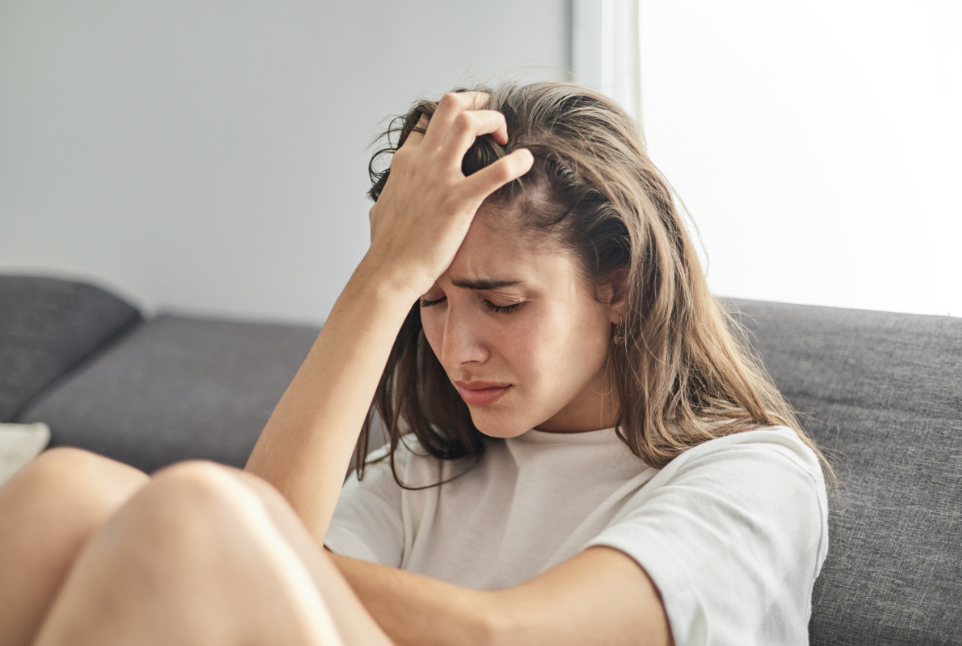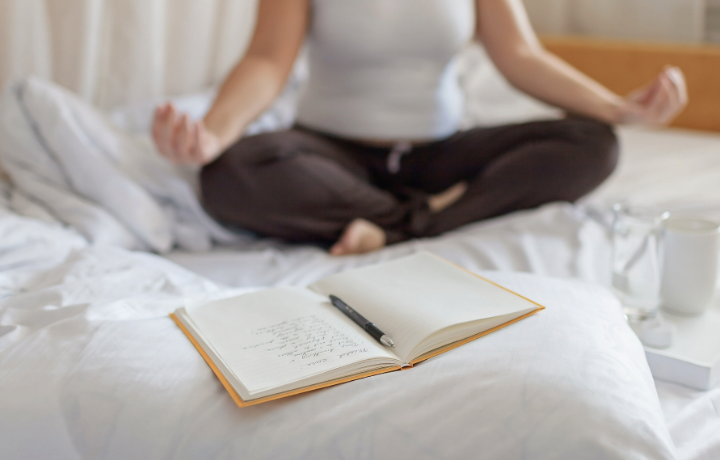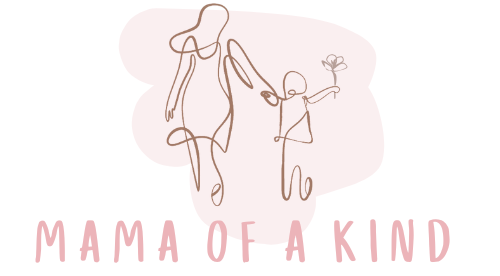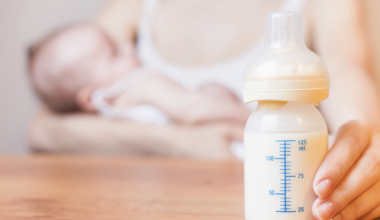You might’ve heard the terms PPD and PPA before. Postpartum depression (PPD) is a type of depression that happens after childbirth, affecting 1 in 7 (14%) new mothers.1 Postpartum Anxiety (PPA), on the other hand, is characterized by excessive worrying and intrusive thoughts after becoming a parent, affecting 11-21% of new mothers.2
Mental health, especially in the context of motherhood, is still such a taboo subject. I know for myself, every time I’d open up about my experiences with depression or anxiety, people would become silent…and it felt very uncomfortable.
This article aims to raise awareness, provide information on the symptoms of PPD and PPA, emphasize the importance of early detection and intervention, and offer resources and support for mothers experiencing these challenges.
Understanding Postpartum Depression & Anxiety
Postpartum Depression

There are three types of mood disorders related to childbirth: baby blues, postpartum depression, and the more rare postpartum psychosis. PPD affects 15% of new mothers, while postpartum psychosis affects 1 in 1000 new mothers.3 Baby blues (which can be observed in 50%-75% of new mothers)3 can be confused with postpartum depression as they both have similar signs and symptoms. However, baby blues typically lasts 1-2 weeks and usually subsides on its own.3
Signs & Symptoms of Postpartum Depression:1
- Depressed mood most of the day;
- Sadness or irritability4;
- Insomnia or excessive sleeping;
- Feelings of worthlessness or guilt;
- Fatigue or loss of energy;
- Suicidal thoughts;
- Difficulty concentrating or making decisions;
- Change in appetite or weight;
- Loss of interest in activities.
New mothers with PPD can also show signs of PPA, which appears in the form of generalized anxiety.4
Postpartum Anxiety

Postpartum anxiety involves excessive anxiety that consumes a new parent’s day and night, manifesting as constant worrying or intrusive thoughts.
Some examples of postpartum anxiety could be: Not being able to sleep at night because you worry your baby isn’t sleeping; not being able to have someone you trust take care of your baby; or making worst case scenarios in your head about things that can happen to you, your baby or a loved one.
Signs & Symptoms of Postpartum Anxiety: 2
- Difficulty sleeping;
- Inability to sit still;
- Checking things over and over again;
- Feeling on edge or fearful;
- Making worst-case scenarios in your head;
- Difficulty focusing;
- Avoiding people/places;
- Nausea or upset stomach;
- Heart palpitations;
- Muscle tension;
- Shortness of breath;
- Loss of appetite.
Early Detection & Intervention

Many cases of postpartum mood or anxiety disorders go untreated or unnoticed. Mothers may not recognize the signs of postpartum depression or postpartum anxiety and might attribute their feelings to the challenges of motherhood.
Healthcare providers play a critical role in asking the right questions during postpartum visits and creating an environment where mothers feel comfortable discussing their feelings. Some mothers might feel ashamed to admit their feelings, in fear that they look like bad mothers or that their child will be taken away from them.
Risk Factors for Developing Postpartum Depression & Anxiety
Risk factors for developing postpartum depression and anxiety include personal or family history of depression or anxiety, previous pregnancy loss or loss of a child, history of eating disorders, lack of social support, lack of exercise, poor eating habits, decreased sleep, and a risky pregnancy or traumatic birthing experience.1 , 2
But, mama, know that you can experience postpartum depression or anxiety regardless of these risk factors, so it’s important to listen to yourself.
Seek Professional Help

First comes first, trust any feelings you have, open up and be honest with your healthcare providers. It’s important that you communicate some of those uncomfortable feelings that you may be having. If you suspect you might be experiencing PPD or PPA, talk to someone about it; whether it’s a friend, your partner, or family. You probably have access to more healthcare providers than you realize; GP, OBGYN, Paediatrician, Community Nurse, Helplines, etc. So book that appointment!
You might feel like you’re just going through a phase and that it’s nothing; or that people might not take you seriously; or that you might look weak. Trust me…I get it. But, you really have nothing to lose. PPD and PPA are more common than you might think, so you’re really not alone in this!
Your healthcare provider will be able to assess your situation and help determine the appropriate treatment, such as therapy (Psychotherapy or Cognitive Behavioral Therapy, to name a few)5, medication, and/or support groups.
In regards to therapy, a lot more therapists are offering their services via video calls, which makes it so much more convenient and accessible. If you’re not feeling well to make phone calls, try assigning one of your support people to make the phone calls for you and also check with your insurance provider to see what’s covered.
Coping Strategies for Postpartum Depression or Anxiety

Alongside obtaining professional help or reaching out to trained healthcare providers, a strong support system is crucial for coping with postpartum depression or anxiety. Whether that be friends, neighbours, family, healthcare providers; you need people to be by your side.
It’s even possible to connect with other mamas on the Internet, such as on social media or forums! I invite you to join the MOAK forum, specifically for this reason! A lot of mamas are going through the same thing as you, believe it or not!
With a support system being the most important tool in coping with postpartum depression or anxiety, here are other tools that can be useful:
- Prioritizing sleep (I know that can be difficult, especially with a baby, but even squeezing in a little nap can help);
- Going outside for some fresh air and a change of scenery;
- Practicing mindfulness or deep breathing exercises;
- Exercising!;
- Eating well;
- Talking about your feelings. If you don’t feel comfortable, you can journal them.
- Prioritizing self-care practices (nice warm bath, alone time, etc) – I invite you to read our article about Self-Care for Mamas for more ideas!
Maternal Mental Health Resources
Here are a few recommended online resources that can help support you:
- Postpartum Support International: Helpline for postpartum support;
- Postpartum Progress: Online community for mothers experiencing PPD or PPA;
- Local support groups: Search online for support systems available in your region, such as the YMCA;
- The MOAK Community: A non-judgmental support group connecting mothers worldwide.
Why It’s So Important to Support Mothers With Postpartum Depression & Anxiety

This is for all mamas’ family and friends. Listen up!
Motherhood isn’t as flawless as it can seem to be. The motherhood journey, especially in the early postpartum period, can be unpredictable. A mama has to take care of a new human being, and most of the time, her needs take the back burner. Not only is she taking care of a baby (and possibly other children too), but she’s having to do this while her body is recovering from birth and while her hormones are seeing some major adjustments! For a mother to keep her own needs and her emotions in check during the postpartum period is hard. Be careful, mama mode is caring for the other mode; not caring for the self mode.
In other words, every mother needs support.
She might look happy, she might look like she can keep it together, she might look like she can handle everything. But…the truth is, motherhood is so overwhelming, that a mama can so easily be caught up in being on overdrive mode that she doesn’t even have the time or energy to sit with her feelings or realize that she may be going through something. It can be so hard for most mothers to ask for help, for many different reasons.
So please, check in on that mama. Help her. Listen to her. Accompany her to her doctor’s appointment. Make those phone calls for her. Gather supportive information for her. Support her in any way you possibly can. You can make a difference!
To Conclude
In motherhood, there are many challenges that mothers face. Postpartum depression and anxiety are major health challenges that mothers can experience and are more common that we think. Yet, these maternal health issues are often undiagnosed or left untreated. This is why it’s crucial to empower mamas to trust their feelings and seek help and support. Postpartum depression and anxiety are subjects that are too often silenced and a lot of stigma is attached to them. As a society, we need to break that cycle; we need to educate ourselves and equip ourselves with the right knowledge; we need to be that voice for all mamas and raise awareness; and most importantly, we need to be present and actively support our mamas in this challenging journey. It takes a village to raise a child, but it also takes one to take care of the mother.





